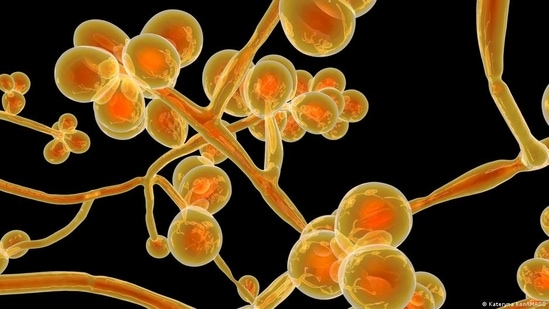
Anusha Attree: This 20-year-old changemaker aims to break the stigma around menstruation
1 month ago | 26 Views
While growing up, hearing of taboos like 'girls should not go to the kitchen' or 'girls should avoid going to the temple' during their monthly menstrual cycle, was common for Anusha Attree. It is these experiences that eventually made it impossible for the New Delhi-based girl to ignore the struggles that many women, especially those in under-privileged homes, endure when it comes to their menstrual health.
It wasn't long before Anusha realised that periods are nothing to be ashamed of. And that became the seed for Anusha's journey as a changemaker in 2020.
Anusha Attree is a passionate leader of Girl Up Adira, a club associated with Girl Up India, which is a part of a global development initiative by United Nations Foundation. It is focused on equity for girls and women in spaces where they are unheard or underrepresented. Additionally, Anusha is the founder of NGO WarriorsWithoutCause, and is committed to driving impactful health initiatives for women.
The Covid-19 pandemic was life-changing
"My journey in advocacy and social service began during the Covid-19 pandemic, when I witnessed the plight of the homeless living in unhygienic conditions and suffering from hunger. This experience ignited my determination to advocate for the voiceless, leading me to establish the WarriorsWithoutCause NGO in 2020," the 20-year-old tells Health Shots.
Through grassroot campaigns focused on healthcare, education, employment, and nutrition, she honed her skills in project management, leadership, and community engagement. She is proud of making a collective impact over 300,000 people through adoption of over 15 slums across India.
As the Founder President of the Girl Up Adira Club, she has spearheaded initiatives promoting gender equality and raising awareness on pressing social issues like domestic violence and LGBTQIA rights. She has also interned with the Delhi Commission for Protection of Child Rights and the United Nations Academic Impact.

Tryst with Menstrual Hygiene and Management
Menstrual hygiene and management (MHM) is a cause that is incredibly close to her heart. "When I started my journey as a changemaker, MHM was the first issue I dedicated myself to, since I have personally experienced the myths and taboos surrounding menstruation," Anusha tells Health Shots.
While investing time in activities to spread menstrual health education among underserved communities, Anusha understood ground issues. "Lack of access to sanitary products and basic awareness about menstrual health is a significant barrier that impacts their health, education, and overall well-being. Knowing that so many women face these challenges without the resources they need, drove me to take action. By working to improve menstrual hygiene and management, I aim to help break the cycle of stigma and provide essential support to those who need it most," she adds.
For instance, Anusha led a 'Paint It Red' project on Menstrual Hygiene Day 2023. Her team collected over 100 sanitary pad packets and distributed them to underprivileged women in Delhi, accompanied by a menstrual hygiene workshop. "My approach involves engaging activities like Period Bingo and Menstrual Hygiene Pong, fostering open dialogue and dispelling myths," she says.
At WarriorsWithoutCause, she runs monthly menstrual hygiene camps as part of a ‘Swasthya Raksha’ project. These camps provide essential hygiene product kits like pads, hot water bottles, and undergarments, but also offer crucial medical services and educational workshops, including cervical cancer awareness programs to women.
Anusha Attree on creating a period friendly world
Considering the theme of Menstrual Hygiene Management 2024 is Period Friendly World, Anusha points out 8 key areas that deserve action:
1. Universal access to menstrual hygiene products: Provide free or subsidized menstrual hygiene products in schools, workplaces, and public facilities.
2. Distribute menstrual hygiene kits to underserved communities and areas with limited access.
3. Menstrual education: Incorporate comprehensive menstrual education into school curriculums for all genders. Conduct community workshops to raise awareness about menstrual health and dispel myths and taboos.
4. Period leaves: Implement policies that offer paid period leave for those who experience severe menstrual pain or discomfort. Encourage flexible working hours and remote work options during menstruation but employers should protect the privacy of the women.
5. Improved sanitation facilities: Ensure that public restrooms, schools, and workplaces have clean, private, and well-equipped sanitation facilities with access to water and disposal options.
6. Legislation and policy: Advocate for laws and policies that ensure menstrual products are tax-free and considered essential items. Support policies that mandate menstrual health education and provision of products in educational institutions and workplaces.
7. Community Support and Advocacy: Build networks of community support groups to provide education, resources, and advocacy for menstrual health.
8. Encourage men and boys to participate in menstrual health education to foster a more inclusive and supportive environment."
Through her own efforts, she aims to foster a culture of empowerment and inclusivity, striving to create a safer and more supportive community for people of all genders. Apart from menstrual health, Anusha has also worked on sensitization events for mental health and breast cancer awareness.
Read Also: weight loss pills may lead to stomach paralysis, finds new study

















